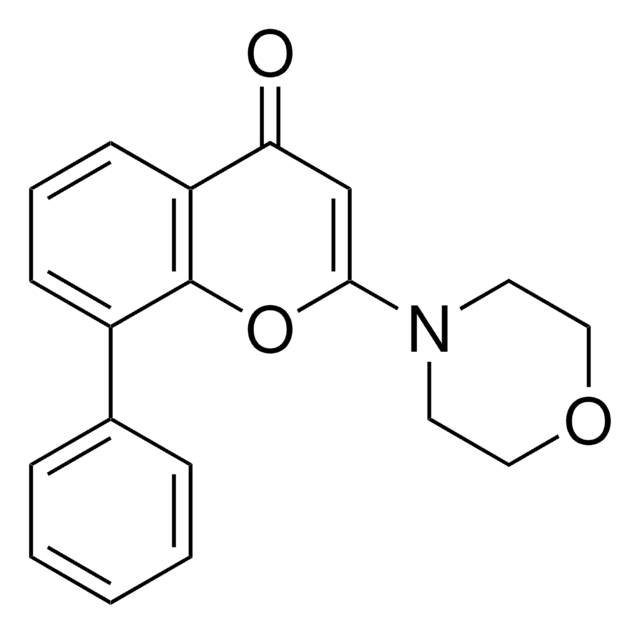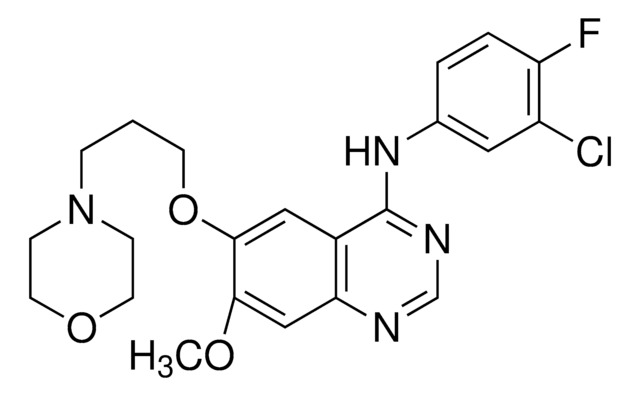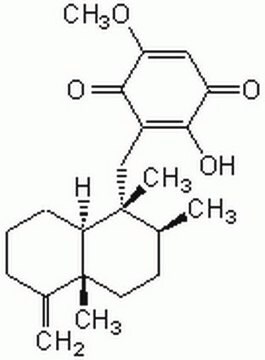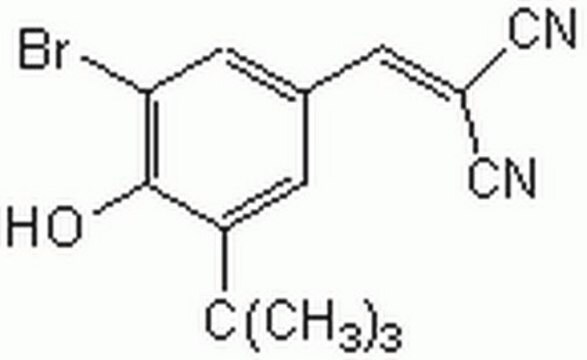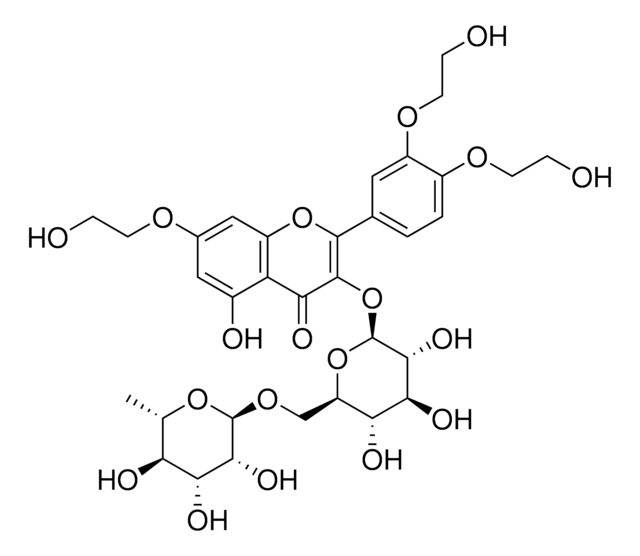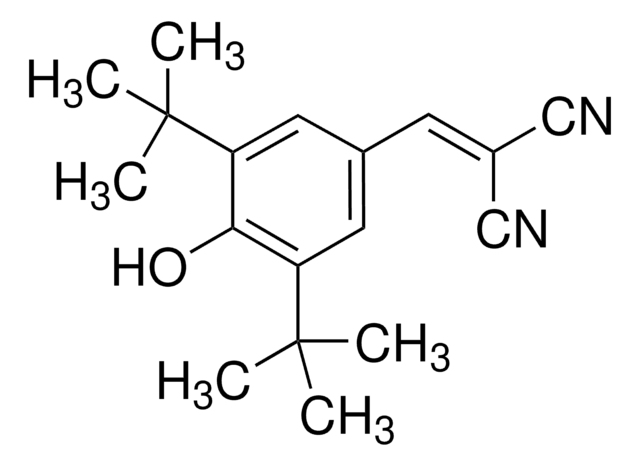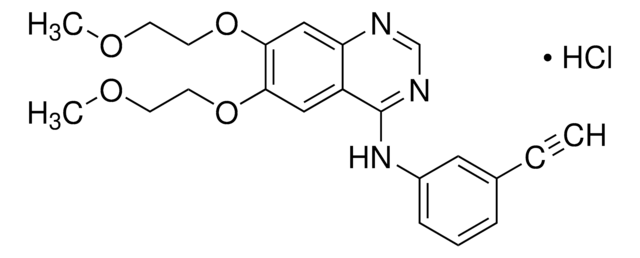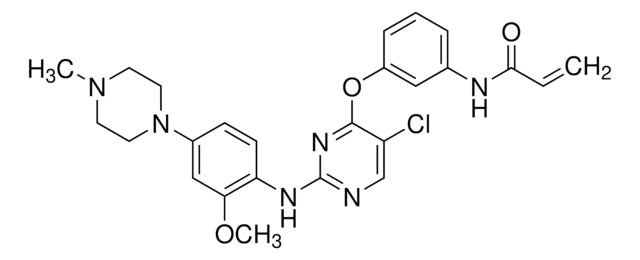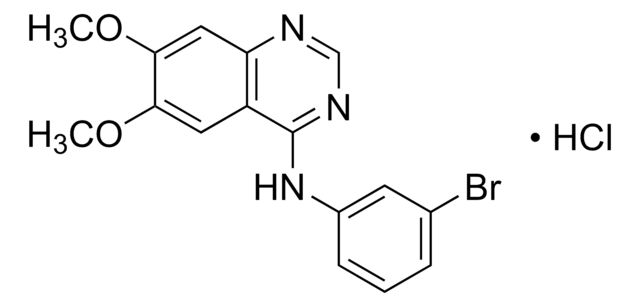T4182
Tyrphostin AG 1478
≥98%
Synonyme(s) :
N-(3-Chlorophenyl)-6,7-dimethoxy-4-quinazolinamine
About This Item
Produits recommandés
Niveau de qualité
Essai
≥98%
Forme
solid
Solubilité
0.1 M HCl: soluble <0.4 mg/mL
DMSO:methanol (1:1): soluble 10 mg/mL, clear, colorless
ethanol: soluble 10 mg/mL
methylene chloride: soluble 10 mg/mL
0.1 M NaOH: insoluble
2-hydroxypropyl-β-cyclodextrin: insoluble
H2O: insoluble
Température de stockage
2-8°C
Chaîne SMILES
COc1cc2ncnc(Nc3cccc(Cl)c3)c2cc1OC
InChI
1S/C16H14ClN3O2/c1-21-14-7-12-13(8-15(14)22-2)18-9-19-16(12)20-11-5-3-4-10(17)6-11/h3-9H,1-2H3,(H,18,19,20)
Clé InChI
GFNNBHLJANVSQV-UHFFFAOYSA-N
Informations sur le gène
human ... EGFR(1956)
mouse ... Egfr(13649)
Application
Actions biochimiques/physiologiques
Caractéristiques et avantages
Notes préparatoires
Code de la classe de stockage
11 - Combustible Solids
Classe de danger pour l'eau (WGK)
WGK 3
Point d'éclair (°F)
Not applicable
Point d'éclair (°C)
Not applicable
Équipement de protection individuelle
Eyeshields, Gloves, type N95 (US)
Faites votre choix parmi les versions les plus récentes :
Déjà en possession de ce produit ?
Retrouvez la documentation relative aux produits que vous avez récemment achetés dans la Bibliothèque de documents.
Les clients ont également consulté
Notre équipe de scientifiques dispose d'une expérience dans tous les secteurs de la recherche, notamment en sciences de la vie, science des matériaux, synthèse chimique, chromatographie, analyse et dans de nombreux autres domaines..
Contacter notre Service technique
